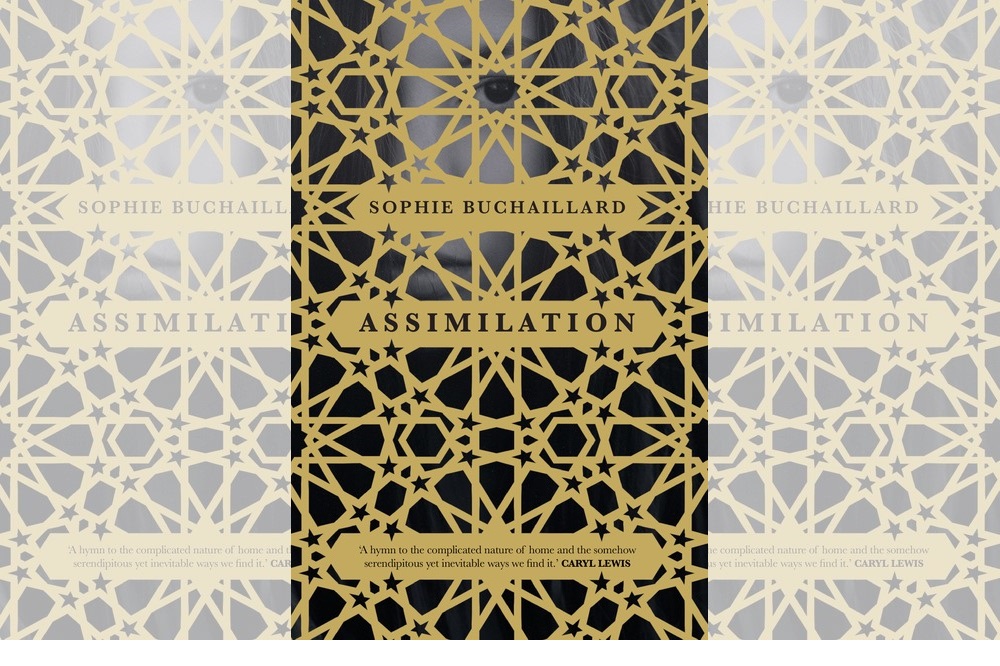Book review: Assimilation by Sophie Buchaillard

Niall Griffiths
In Denis Johnson’s superb study of espionage in the Vietnam war, Tree of Smoke, the reader is frequently and deliberately led astray: who is who? What is the truth? Is this character the same as the other character with whom he shares physical characteristics but not a name?
Confusion reigns, unsurety is paramount. It’s a dizzying whirl of a reading experience. You feel the tangibility of the concrete world being yanked away from you.
Yet I wonder how far a writer can go with mimesis – a fractured narrative to reflect a broken world may have worked for the post-WW1 poets, but in the 21st century, when objective reality itself is negotiable, a work that seeks to imitate that risks, itself, becoming vague and obscure and unclear.
‘Identity is a treacherous construct’ we are told towards the end of Buchaillard’s second novel and indeed it is, especially for the exile, but, like meaning, it is not a futile concept to pursue.
That Buchaillard accepts this as a given is to her credit.
Her first novel, This Is Not Who We Are, explored this notion through the prism of child victims of the Rwandan civil war, and what a powerful and stirring work that was; Assimilation attempts a similar thing relocated to the French colonial involvement in Morocco and Algeria (more closely related to Buchaillard’s own personal history, I imagine).
There are echoes of atrocity (often distilled symbolically into scenes of domestic violence); themes of migration, and its effect on identity and self-expression; chapters entitled, for instance, ‘Mosaic’ and ‘Fracture’; and there is something, at the end, about espionage, which feels a tad unnecessary.
Engaged
Buchaillard’s own definition of ‘Assimilation’ is used as an epigraph (alongside the OED definition), and is worth quoting in full, because it’s great:
‘Assimilation is the parasitic lie used to hollow out the migrant, making husks of former selves; complex mosaics reduced to a single language, a single culture, in the name of universality.’
Yeah, that’s good; amongst all the desperate talk of ‘British values’ etc that are spewing out of a moribund administration, this is good, engaged, angry stuff.
The novel that follows, tho – does it honour this? Does it justify such encapsulation? I’m not sure.
It throws the reader about, at first; chapter titles root us in physical place, but the chronology is chaotic; I take the point, that history is not past and continues to reverberate and unfold into a jigsaw that demands individual agency to make sense of, but the narrative is consistently and exasperatingly interrupted (perhaps giving each chapter a notional date in time would have helped, here).
The reader is Phileas Fogg’d through Wales and Lisbon and Paris and Morocco and many other places which is discombobulating enough without the Quantum Leaps through time. Mimesis meets a wall.
Cohesion
There is some cohesion towards the novel’s close, when threads meet, backstories are clarified and connected, and reasons are revealed; the protagonist’s (Charlotte’s) painful past opens out, even as giant historical events occur (covid, Brexit), the effect of which on the individual Buchaillard admirably foregrounds.
‘My body is no longer my own’, she states, following a nervous breakdown and her release from Whitchurch Mental Health Hospital; mental disintegration as a parallel of sociopolitical meltdown is a motif (narrowed down, primarily, to the migrant experience).
This is a powerful trope which has lost none of its power and relevance in the century since The Wasteland but oh how the reader yearns for a buoy here – a stabilising thing to cling on to, to keep her head above the morass.
Buchaillard has found a furrow to plough, it seems, and long may she continue to do so; it is one of fertile urgency. Yet the modern mind longs for patterns, for mappable shapes, in all the splat and clamour of the world. The seas are wide and wild and dangerous.
Assimilation by Sophie Buchaillard is published by Honno Women’s Press and is available to buy from all good bookshops.
Support our Nation today
For the price of a cup of coffee a month you can help us create an independent, not-for-profit, national news service for the people of Wales, by the people of Wales.






